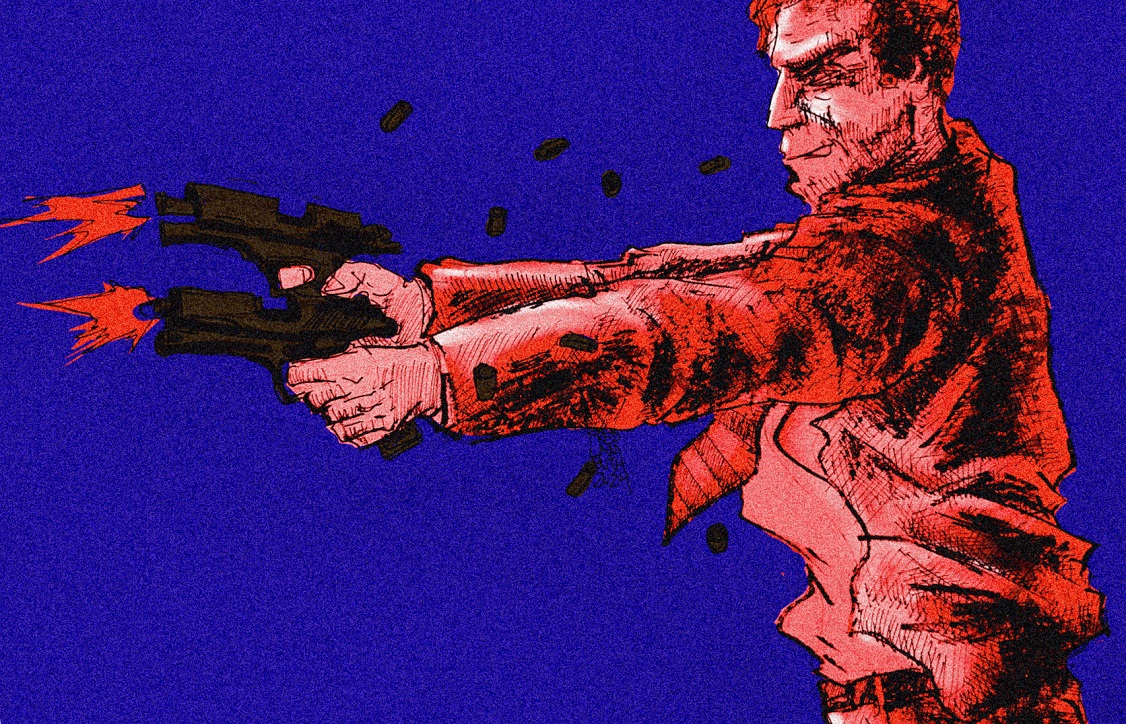Fred and Loathing on The Internet
Welcome to the public web log of Fred Lambuth

Popular Tracks from 2024-07-01
I Was Working on a Case Because I Couldn't Afford a Desk
2024-Jul-01
I was a victim of circumstance. There was another James Ellroy novel floating around me. One I have had in my possession for years. A novel I have read ten percent of yet never found myself finishing the book. The reason I never found myself ready because I remember that first ten percent of that book being a big fucking jumble of super slick dirty cop language. I wanted to to cipher just what the hell was being said but at the time of first picking up this book I must have found it too tiresome. Thus the book began floating around my car, my book case, and eventually into my lap once more.
Complaints had been made on this blog before about the breakneck paced writing style James Ellroy had gotten too comfortable using after finding success with it. This novel follows suit. And how!
It’s hard to tell if the language got cleaned up or not compared to his next novel. White Jazz was written before American Tabloid. They both have the same machine gun spray of words in the place of full sentences. Reading fiction work from this author back to back quickly shows to me his talent is best left in broadly dispersed visits. What once was charming becomes revolting after a near thousand pages of stitching together tough guy words into sentences as I read them.
I had only revisited the challenge of White Jazz because I felt inured to the way he imagines 1950s detectives to be; which is personal paragons of imperialism; white men realizing how corrupt a cop can make himself with the chances HE is given in the USA after World War Two. Getting used to Ellroy’s writing style helped me make sense of what was going on, most of the time. It did not ingratiate me further to this style.
White Jazz is the last of Ellroy’s first ‘quartet of novels’. One set in his homeland of Los Angeles, California. I am five novels deep into James Ellroy’s catalog and have yet to read L.A Confidential! The movie is something I’m much more acquainted with. I have hopes that particular volume of Ellroy will be the absolute epitome of his cartoonishly cynical attitude delivered in staccato bursts of 50’s slang and cop jargon. White Jazz takes place right after that more famous novel.
White Jazz gives you that pierced language Ellroy is known for, but it was just too jazzed up for my comfort. The movie version of L.A. Confidential only obscures the super tight narration and only hints at the extent of how ugly an LAPD detective in the 1950s might speak. Maybe the movie version cleaning up the language is for the better?
Dear readers, I will tell you I had consulted the wikipedia for this book when I got to about three fifths through the pages. There were just so many moving parts and so much flowery vernacular moving things forward that I had little confidence in how to comprehend the pages I read. What I found was not all too exciting. Something is lost about the intricate plots in Ellroy’s novels when they’re laid out simply. Then again, his language really obfuscates a simple laid out picture of the plot. I suppose you’d have to be in the right audience in the right mood to get blasted with James Ellroy's dirty cop stream of consciousness.
This is not a scathing review. I enjoyed the book despite the work it took to figure out just what the hell was going on in the one word phrases mostly made up of incredibly racist epithets and cop talk. Ellroy knows his turf and this book is squarely in there. You will find plenty of guns, broads, drugs, whores, winos, junkies all dressed in stylish 1950’s garb riding in huge cars made of heavy steel.
Add Comment